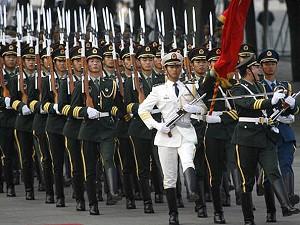HONG KONG—The leader of the Chinese Communist Party (CCP), Hu Jintao reassigned several military chiefs prior to his visit to Australia. This apparently was done to show that his control of the military is so tight that it is not affected by his absence.
The shuffle included the following transfers: Lieutenant General Liu Chengjun, Vice Commander of the PLA Air force, was named President of the PLA Academy of Military Science (PLAAMS); General Yu Linxiang, Political Commissar of Lanzhou Military Area Command, was named Political Commissar of the Chinese People’s Armed Police Force (CPAPF). Both General Sui Mingtai and Lieutenant General Zheng Shenxia retired from their previous posts as Political Commissar of the CPAPF and President of the PLAAMS, respectively.
According to the Hong Kong Apple Daily, Liu Chengjun has been attending public events in his new post since Sept. 4, and Yu Linxiang took office as the Political Commissar on Sept. 5. The Vice Political Commissar of Nanjing Military Area Command, Li Changcai, has taken over General Yu’s original post.
It is reported also that Hu Jintao has removed five generals close to the official retirement age, and at least five more generals will retire later this year, including You Xigui, Director of the Central Guards Bureau, Zhu Wenquan, Commander of Nanjing Military Area Command, Wang Jianmin, Commander of Chengdu Military Area Command, Yang Deqing, Political Commissar of Guangzhou Military Area Command, and Zhao Keming, Political Commissar of the PLA National Defense University.
It is thought that the timing of the reassignments has a two-fold meaning in terms: First, while three generals retired in June this year, it came to light that Hu Jintao had planned to remove the director of the Central Guard Bureau, but failed to do so due to opposition from Jiang Zemin, former Party chief and head of the Central Military Commission, which showed that Hu and Jiang were still fighting for power over the Chinese military. Now, as news of the shuffling of high-ranking officials came out during Hu’s visit outside of the country, apparently Hu wants to show that he is in charge of the military and this firm control is not affected by his absence.
Second, Hu’s shuffling of military heads one month prior to the convening of the CCP’s 17th National Congress, shows that he can dominate personnel changes and further influence the voting of the congress. Traditionally all these military heads that are at the level of major military regions will be routinely elected the member of the Central Committee of the CCP and have the voting right for the central committee leaders.



